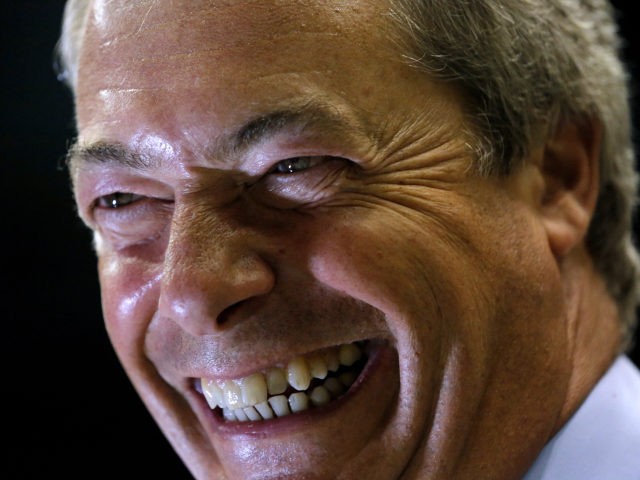A BBC presenter said she felt “haunted” by complaints that the broadcaster was “building up” UKIP and its then-leader Nigel Farage in the early 2010s.
Samira Ahmed, who presents the viewers’ feedback programme NewsWatch on the BBC’s news channel, had made the remarks on her non-BBC podcast How I Found My Voice while interviewing Private Eye editor Ian Hislop.
While discussing with Hislop how appearances on their platforms had boosted the careers of various political figures, Ahmed stated that in the early 2010s, NewsWatch had received complaints from viewers about the BBC “building up” Mr Farage and his eurosceptic UK Independence Party (UKIP) ahead of local elections, according to The Times.
“I’m haunted by that and I remember talking to editors about it,” said Ms Ahmed of her memories of the complaints.
The BBC is embroiled in another controversy over coverage after opening a complaints page for viewers to lodge their objections to the airtime given to mark the death of Prince Philip, the World War Two veteran who was the Queen’s consort for 73 years. Despite headlines proclaiming the volume of ‘record breaking’ complaints, totalling 109,741, it still represents just 0.4 per cent of the more than 25.5 million TV licence holders in the UK.
A BBC spokesman said regarding Ahmed’s remarks: “All BBC news and current affairs journalists must avoid appearing to express personal views. We have discussed the video [of the event] with Samira and she is clear that she was referring to being ‘haunted’ by the number of complaints rather than trying to give a wider commentary.”
In the last several years, the BBC has been embroiled over accusations of bias. A 2018 report from think tank Civitas found that the broadcaster had suppressed pro-leave voices, finding that between 2005 and 2015, only 3.2 per cent of guests on BBC Radio 4’s flagship current affairs programme Today had guests backing leaving the EU.
BBC veteran John Humphrys admitted in 2019, after he left the broadcaster, that his former employer had an “institutional liberal bias” and “tried to mould the nation into its own liberal-Left image”.
Long derided by the establishment as a fringe party, UKIP, and its sometimes leader Nigel Farage, was a leading voice in recent decades for the UK leaving the EU. UKIP and Farage had rightly gained their coverage in British media after their 2004 successes in the European Parliament elections, returning the third-highest number of MEPs. By 2014, two years before the referendum, UKIP had the highest number of lawmakers in the European chambers.
The party also gained support in general elections between 2010 and 2015, and while winning just one seat in 2015, won more than one-eighth, 12.6 per cent, of Britons’ support. Facing pressure from the rising eurosceptic party and from dozens of Tories, in 2013, then-Prime Minister David Cameron pledged to hold an in/out referendum on membership of the EU if the Conservatives won the next election.
Mr Farage then took his campaigning success into the formation of a new party, launching The Brexit Party in April 2019. Farage was concerned that the Remain-backing minority Tory government, led by then-Prime Minister Theresa May, would fail to deliver Brexit.
Just one month later, The Brexit Party decimated the Tories in European Parliament elections, coming first with the Conservatives in fifth place, in what some commentators said at the time was the worst election result for the party in two centuries.
While Mr Farage has since retired from frontline politics, he left as his latest legacy the Reform UK party, which aimed to hold Boris Johnson accountable post-Brexit.
Farage himself has committed to campaigning against the influence of the Chinese Communist Party (CCP) in Britain and the Marxist-progressive agenda sweeping the West.

COMMENTS
Please let us know if you're having issues with commenting.